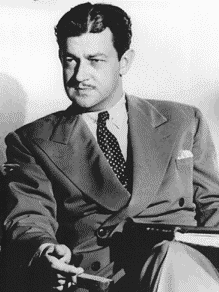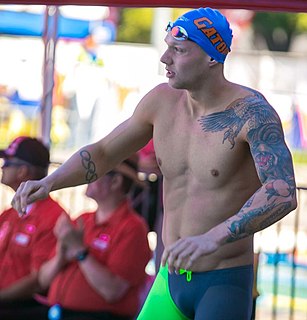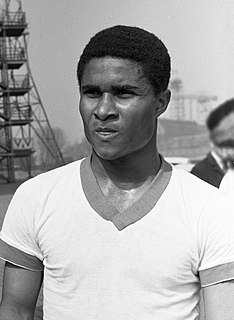A Quote by Austin Farrer
...the best figurative poetry speaks not to the frivolous intellect, but (if anything does) straight to the heart; and does it better than plain prose. There seems then to be something which is better said with metaphor than without, which goes straighter to its mark by going crooked, and hits its aim exactly by flying off at tangents.
Related Quotes
A pretty girl is better than a plain one. A leg is better than an arm. A bedroom is better than a living room. An arrival is better that a departure. A birth is better than a death. A chase is better than a chat. A dog is better than a landscape. A kitten is better than a dog. A baby is better than a kitten. A kiss is better than a baby. A pratfall is better than anything.
Certainly for me prose has a dilatory capacity, insofar as I don't trust my abilities in prose. I imagine I could have done the same thing in poetry, but sometimes I feel more fluent in poetry than in prose, and as a consequence perhaps I might pass too quickly by a thing that I might, in prose, have struggled merely to articulate. That struggle creates space, and it seems to me a particular kind of space into which memory flows easily. I suspect I think better in poetry, however.
Poetry has an indirect way of hinting at things. Poetry is feminine. Prose is masculine. Prose, the very structure of it, is logical; poetry is basically illogical. Prose has to be clear-cut; poetry has to be vague - that's its beauty, its quality. Prose simply says what it says; poetry says many things. Prose is needed in the day-to-day world, in the marketplace. But whenever something of the heart has to be said, prose is always found inadequate - one has to fall back to poetry.
Once upon a time there was a crooked tree and a straight tree. And they grew next to each other. And every day the straight tree would look at the crooked tree and he would say, "You're crooked. You've always been crooked and you'll continue to be crooked. But look at me! Look at me!" said the straight tree. He said, "I'm tall and I'm straight." And then one day the lumberjacks came into the forest and looked around, and the manager in charge said, "Cut all the straight trees." And that crooked tree is still there to this day, growing strong and growing strange.
In the darkest hour through which a human soul can pass, whatever else is doubtful, this at least is certain. If there be no God and no future state, yet even then it is better to be generous than selfish, better to be chaste than licentious, better to be true than false, better to be brave than to be a coward.
A wise man ought always to follow the paths beaten by great men, and to imitate those who have been supreme, so that if his ability does not equal theirs, at least it will savor of it. Let him act like the clever archers who, designing to hit the mark which yet appears too far distant, and knowing the limits to which the strength of their bow attains, take aim much higher than the mark, not to reach by their strength or arrow to so great a height, but to be able with the aid of so high an aim to hit the mark they wish to reach.
As Venus within Eros does not really aim at pleasure, so Eros does not aim at happiness. We may think he does, but when he is brought to the test it proves otherwise... For it is the very mark of Eros that when he is in us we had rather share unhappiness with the Beloved than be happy on any other terms.
In this life we get only those things for which we hunt, for which we strive, and for which we are willing to sacrifice. It is better to aim for something that you want-even though you miss it-than to get something that you didn't aim to get, and which you don't want! If we look long enough for what we want in life we are almost sure to find it, no matter what that objective may be.






































